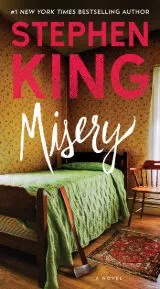The Zahir by Paulo Coelho -...
When you hear the name Paulo Coelho, the firs...
By Kathy Graves2145

0

Stephen King has managed to establish his name among horror writers since the first novel he wrote “Carrie” and continued to do so for more than 40 years after.
Not only did he write 50 novels, but he managed to leave a legacy of some of the best-selling novels of all time.
His uncanny ability to score the commercial bull’s eye took a whole new level in 1977. King succeeded with another commercial triumph when he published his most celebrated novel “The Shining”.
Stanley Kubrick then adopted the novel and turned it into a movie that put King in the leading seat in the horror genre.
However, King wasn’t just a horror writer that one could easily dismiss if they are not interested in the genre. Other than the fact that Stephen king managed to add depth to his novels and other tones of psychological terror, he is polymorphous.
Besides horror, he explored other genres such as science, historical fiction, fantasy novels, science fiction, and more.
Many people have questioned King’s popularity claiming that commercial triumphs do not necessarily equal literary value. Mr. King, however, usually disregarded these claims way before he was established as a ‘national treasure’.
The author once replied to an interviewer when he was faced with a question about how he feels regarding people who think of him as “a low peddler of cheap horror”, he then answered “I have outlived most of my most virulent critics.
It gives me great pleasure to say that. Does that make me a bad person?”. Later on, his book “Misery” was published to shut any speculations regarding his writing skills.
Even though Misery wasn’t the most popular book that King wrote, the public response to this novel was astonishing. People who didn’t even enjoy horror novels were mesmerized by how good and well-written this book is.
Misery starts out with added suspense when Paul Sheldon wakes up in agonizing pain from a coma without any certainty regarding what had happened to him or where he is.
The protagonist is a writer who is very famous for his best sellers and successful novels. Paul has been married and divorced twice.
What had happened slowly dawned on Paul when he remembered that he was out celebrating his new novel “Fast Cars”; he was so drunk on champagne, that he flipped his car.
Suddenly, he was in a farmhouse in an unknown location. Paul is nursed by a large hideous fan of his work, except that the meaning of nursing here isn’t in its normal sense.
While Annie Wilkes, his captor, was a big fan of his “Misery series”, she is not so keen on his latest novel “Fast Cars”.
The situation might be clouded with a comedic sense when his fan tries to “take care” of him by forcing him to pop a crazy number of opioid pills, so he can get better and finish the manuscript she found in his bag.
Annie is crazed by the death of his protagonist “Misery Chastain”, so she insists that Paul brings her back to life in the new novel he is writing.
Soon enough, Paul realizes that he is not just dealing with an obsessive fan, but a dangerously crazy one. With his inability to use his legs and the number of painkillers pills she hooked him on, he finds no other choice but to adhere to her wishes.
The novel might be viewed as a reflection of Mr. King's true feelings about being a writer. It portraits the torture he undergoes to execute a well-applaud story. Annie isn’t a random crazy fan; she is a connoisseur of storytelling that puts her in the position of his ultimate critic.
Updated 4 years ago